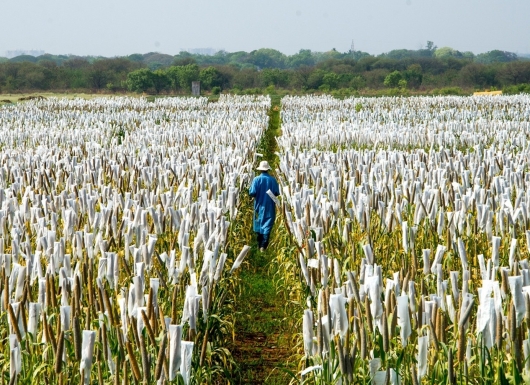Submitter: (ICRISAT)
Developing human resources in evolving technologies is a crucial long-term strategy for partner countries to enhance their agricultural innovation and resilience. The science of plant breeding has evolved considerably over the last 2-3 decades, from a purely phenotypic selection in the field to a more genomics and technology-oriented approach. As DNA-based technologies and data-driven breeding approaches rapidly evolve, continuous capacity building becomes essential to keep pace with these advancements. Such programs offer valuable opportunities for researchers and practitioners to learn best practices in crop breeding, gain hands-on experience with cutting-edge tools, and optimize their use in varietal development programs. Investing in human resource development ensures that partner countries can effectively harness emerging technologies, accelerate breeding cycles, and ultimately improve crop productivity and food security sustainably.

The varietal development programs in the partner countries would be equipped to develop new cultivars that meet the needs of the agroecologist and markets. The adoption of new crop breeding technologies encompasses a variety of innovative approaches, including demand-led breeding, speed breeding, advanced phenotyping and genotyping tools for selection, High throughput genotyping, high throughout phenotyping, and data-driven breeding methods. T
he key benefits of these advancements include increased efficiency in varietal development processes and enhanced operational effectiveness. Additionally, capacity-building programs serve as a platform to facilitate ongoing networking and continuous skill development, ensuring sustainable progress in crop breeding efforts.
ICRISAT, under its Dryland Academy, has developed many training programmes, including one on “Modern Breeding Technologies,” which has been offered to four batches globally. Likewise, both ICRADA and IRRI, have specialized training programmes for modern breeding technologies. The three institutes will collate and develop a unified training course that could be tailored to meet the requirements of the partner countries/regions.
ICRISAT organized a capacity building program for NARS recently on new crop breeding technologies to breed climate resilient varieties. https://pressroom.icrisat.org/icrisat-and-australian-consulate-general-empower-next-generation-of-crop-breeders-for-climate-resilience
The trained crop breeders have played a vital role in advancing varietal development programs across numerous countries, including India, Myanmar, Bangladesh, Vietnam, Kenya, Malawi, Zimbabwe, Tanzania, Uganda, Niger, Nigeria, Senegal, Burkina Faso, Mali, and several others. Their contributions have helped improve crop yields, disease resistance, and adaptability, supporting agricultural productivity and food security in these regions. https://www.icrisat.org/dryland-academy
The capacity building programs can be implemented through two primary approaches:
Janila P: janila.pasupuleti@icrisat.org, +91-99899 30855 Padmaja R: padmaja.ravula@icrisat.org, +91-98482 38598